 SESSION 1 | 9:00-10:30 a.m.
SESSION 1 | 9:00-10:30 a.m.
Keynote Lecture
CEH: 1.5 hours
I CAN HARDLY WAIT FOR TOMORROW
Speaker: Mark Doty, Poet, Essayist and Author
About The Speaker
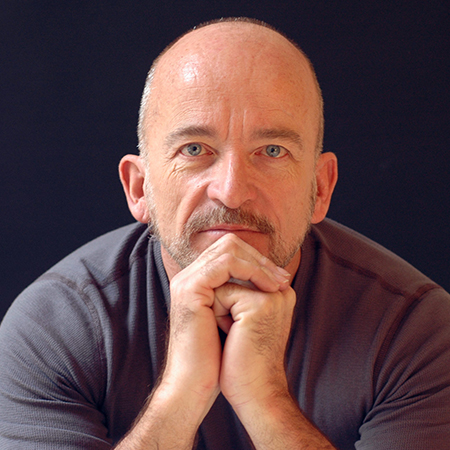 MARK DOTY
MARK DOTY
Author of nine books of poetry, winner of the 2008 National Book Award, the Los Angeles Times Book Prize, the National Book Critics Circle Award and the T.S. Eliot Prize in the UK. He is also the author of four memoirs, as well as a book about craft and criticism. Doty has received two NEA fellowships, Guggenheim and Rockefeller Foundation Fellowships, a Lila Wallace/Readers Digest Award and the Witter Byner Prize.
 Read More About The Speakers
Read More About The Speakers
About the Lecture
I CAN HARDLY WAIT FOR TOMORROW
Mark Doty will read poems and excerpts from prose works that examine occasions of loss and of grief and talk about the experiences and ideas that informed them. He has always used his writing as a means of negotiation with the difficult. We can't change the fact that we and those we love are mortal, but how are we to bear and accept the losses time will inevitably bring us? Where do we find strength, and the resilience to continue? Can you go on loving the world when you know that everything you love -- and you yourself -- will be swept away?
After attending this presentation, the attendee will be able to:
- Listening to the literature, examine personal loss
- Experience pleasure in recognizing familiar emotions and situations, and may feel less alone
- Identify some of the ways we find resilience and hope
- Describe what it's like to be alive.
10:30 a.m.
Break
 SESSION 2 | 10:45 a.m.-12:00 p.m.
SESSION 2 | 10:45 a.m.-12:00 p.m.
Lecture
CEH: 1.25 hours
ON 4 YEARS OF COVID: VIRUSES, ETHICS & ART
Speaker: Craig M. Klugman, PhD
About the Speaker

CRAIG M. KLUGMAN, PhD
Vincent de Paul Professor of Bioethics and Health Humanities, Department of Health Sciences, DePaul University
 Read More About The Speakers
Read More About The Speakers
About the Lecture
ON 4 YEARS OF COVID: VIRUSES, ETHICS & ART
Dark fell in December 2019, when officials in China reported several cases of a new virus. Four years later the world has seen over 644 million reported cases and 6.6 million logged deaths from novel 2019 severe acute respiratory syndrome coronavirus 2, more commonly known as COVID-19. For those of us in the United States, this seemed unprecedented. But for most of human history, viruses and bacteria have infected and killed humans, often in large numbers. The Black Death killed 20 percent of all humans on the planet and the 1918 Pandemic flu killed 50 million people—more than the battles of World War I.
In this presentation, we will explore ethical dilemmas raised by our response to the pandemic and the art created in our responses to it. We will also ask, what’s next? What are the lessons we will take away from this experience? As history has shown, the end of a pandemic often prompts a time of cultural and artistic flourishing from the Renaissance after the Black Death to the Roaring 20's after the 1918 flu. The arts can celebrate the joy of survival, mark the sorrow of loss and give form to our collective trauma. What may our world look like after COVID? What great plays will be written? What paintings will be done, and what monuments will be raised to those we have lost?
After attending this presentation, the attendee will be able to:
- Identify some of the ethical issues that have arisen in the COVID-1 pandemic
- Analyze the tension between individual and population responses to health
- Compare and contrast pandemic art and literature in historical and contemporary contexts
- Explore how society and the arts may change because of this pandemic.
12:00 p.m.
Lunch
Registration is required.
 SESSION 3 | 1:00-2:15 p.m.
SESSION 3 | 1:00-2:15 p.m.
Lecture
CEH: 1.25 hours
PROMOTING WELL-BEING THROUGH CONTEMPLATIVE PRACTICES: FROM MOLECULES TO MINDS, AND ON TO RELATIONSHIPS
Speaker: Thaddeus Pace, PhD
About the Speaker

THADDEUS PACE, PhD
Associate Professor in the Colleges of Nursing (Division of Biobehavioral Health Science), Medicine (Department of Psychiatry), and Science (Department of Psychology), University of Arizona, Tucson
 Read More About The Speakers
Read More About The Speakers
About the Lecture
PROMOTING WELL-BEING THROUGH CONTEMPLATIVE PRACTICES: FROM MOLECULES TO MINDS, AND ON TO RELATIONSHIPS
Climate-related disasters, social and political discord and geopolitical crises have increased in recent years. These remarkable, shared sources of stress are in addition to the “everyday” challenges that people experience over the course of their lives. In the face of these challenges, contemplative practices have shown promise to promote resilience and well-being. The benefits of contemplative practices may be especially important for those who have experienced trauma and chronic illness, as well as those who are at risk for illness subsequent to trauma exposure. Found across all major faith traditions, contemplative practices include rituals, prayer, creative and relational practices, movement and different forms of meditation. Scientific research has found that various contemplative practices including yoga, mindfulness meditation and compassion meditation can modulate brain activity, optimize stress-related biology and reduce psychological distress and improve affect. After describing different contemplative practices, this presentation will explore how contemplative practices may encourage well-being not just for individuals, but also for families and communities. Attention will be given to the biological, psychological and social pathways involved. A special focus will be on how contemplative practices may benefit those living with chronic illness, and those at risk for chronic illness. The presentation will conclude with a discussion about the research around one secular compassion meditation program based on Tibetan lojong, called Cognitively Based Compassion Training.
After attending this presentation, the attendee will be able to:
- List different contemplative practices and details for each
- Describe the ways that contemplative practices may improve well-being outcomes, including for individuals who have experienced trauma or chronic illness
- Articulate the psychobiological pathways by which contemplative practices may improve well-being
- Articulate how contemplative practices may be beneficial in ways that go beyond the individual, to families and communities.
2:15 p.m.
Break
CONCURRENT SESSIONS: CHOOSE ONE
 SESSION 4A | 2:30-4:00 p.m.
SESSION 4A | 2:30-4:00 p.m.
Practicum
CEH: 1.5 hours
THE ART OF MINDFULNESS
Speaker: Hope Heavenrich
About the Speaker

HOPE HEAVENRICH
Museum educator and founder of Art Matters with Hope focusing on education, professional development and well-being. Hope has been certified in Mindfulness Based Stress Reduction and teaching MBSR through Brown University. She has presented all over the country and Italy on her work infusing the humanities into health care education. Hope has co-published a number of articles on the benefits of using art in health care education and will travel to Paris in June 2023, to present at the Sorbonne’s art and medicine symposium.
Read More About The Speakers
About the Lecture
THE ART OF MINDFULNESS
After attending this presentation, the attendees will be able to:
- Define mindfulness and how it can be achieved using a work of art as the focus of attention
- Use the technique of body scanning to engage in mindfulness practice
- Use reflection to reinforce present-moment awareness.
 SESSION 4B | 2:30-4:00 p.m.
SESSION 4B | 2:30-4:00 p.m.
Practicum
CEH: 1.5 hours
STRENGTHENING OUR RESILIENCE MUSCLES
Speaker: The Rev. Dr. Scott Stoner
About the Speaker
About the Lecture
STRENGTHENING OUR RESILIENCE MUSCLES
This workshop will address why the traditional definition of resilience which is to "bounce back," is no longer helpful and will present a new way to understand this essential topic which is foundational to mental health and well-being. Resilience is not something a person either has or does not have. Instead, there are specific practices that a person can do to strengthen their capacity for resilience in the face of change and transition. The workshop will be fun (a sense of humor is key to resilience!), informative and interactive; participants will leave with practical steps to enhance their resilience and overall well-being.
After attending this presentation, the attendees will be able to:
- Define resilience
- Understand how to enhance capacity for resilience
- Engage in specific practices to strengthen their capacity to be resilient.



 SESSION 1 | 9:00-10:30 a.m.
SESSION 1 | 9:00-10:30 a.m. MARK DOTY
MARK DOTY


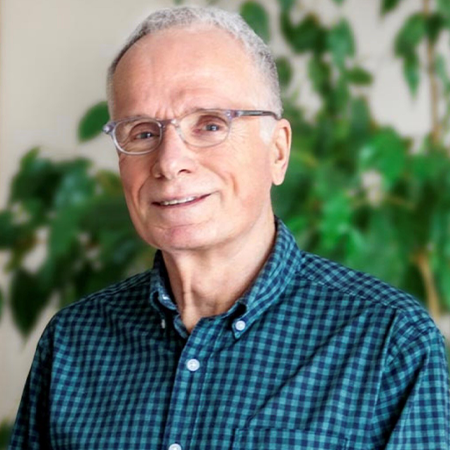 THE REV. DR. SCOTT STONER
THE REV. DR. SCOTT STONER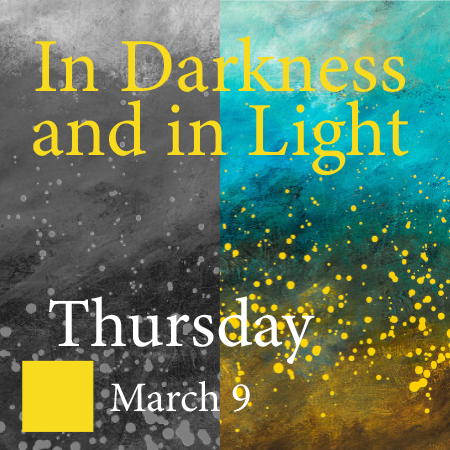
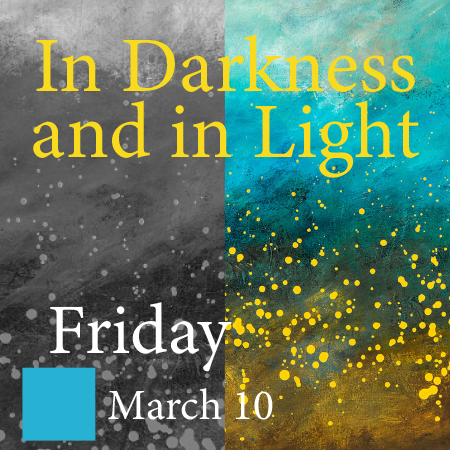
 SESSION 5A | 9:00-10:15 a.m.
SESSION 5A | 9:00-10:15 a.m.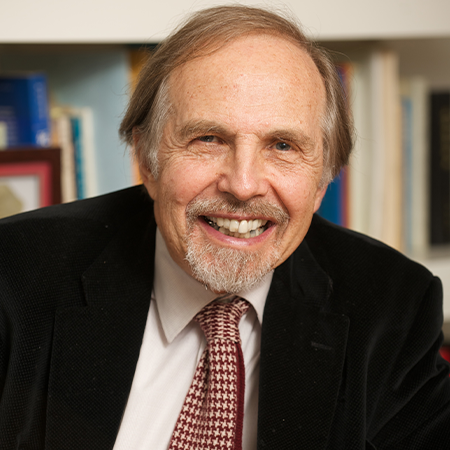 ARTHUR KLEINMAN, MD
ARTHUR KLEINMAN, MD M. BENTO SOARES, PhD
M. BENTO SOARES, PhD TINK TINKER, PhD
TINK TINKER, PhD BISHOP RUDOLPH W. MCKISSICK, JR. M.DIV., D.MIN.
BISHOP RUDOLPH W. MCKISSICK, JR. M.DIV., D.MIN. 

